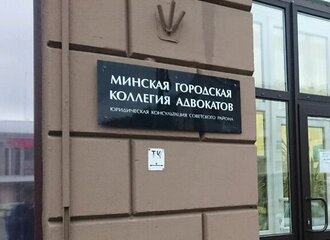На русском языке:
Обзор основных событий беларусской пропаганды о войне в Украине за 17 апреля от Гаюна
На беларускай мове:
Агляд асноўных падзеяў беларускай прапаганды аб вайне ва Украіне за 17 красавіка ад Гаюна
Belarusian Hajun Project published a report on Belarusian propaganda activity on the war topic for April 17.
In a Sunday issue of «Arsenal» show, the column «Razvod» (see 10:27) was devoted to «Ukrainian neo-nazism.»
Key thesis:
- Neo-nazism is flourishing in Ukraine. It has many attributes of Nazi Germany. For example, the slogan «Ukraina ponad use!» in the story is identified with the German «Deutschland über alles»;
- axiom: the Ukrainian army uses the civilian population as a human shield;
- neo-nazism is manifested in the fight against Soviet monuments to World War II (the Great Patriotic War);
- Nazism, having been «fed» with blood in Ukraine, is spreading throughout Europe;
- The manifestations of neo-nazism in Latvia with a standard set of claims — honoring Latvian SS legionnaires, demolition of monuments, etc. are considered;
- The host points to the participation of national police formations consisting of Ukrainians and Latvians in the punitive operations on the territory of Belarus. As a consequence, Latvia actively supports Ukraine today.
Speculation on World War II (the Great Patriotic War in the official Soviet and Belarusian historiography) is the basis of the official ideology in Belarus.
For Belarusians, the word «nazism» has exclusively negative connotations. And it is not surprising – after all, during World War II, according to various estimates, every third inhabitant of the BSSR died. Perhaps, this is why it is so popular among Belarusian officials and propagandists to call everybody around «nazis», because such statements will resonate with a part of the audience. It also allows us to take a stronger moral stance from the very beginning: «Do not teach us how to live. You, fascists, exterminated us 80 years ago.»
Unfortunately, Belarusian propagandists do not know, for example, that in 1940, the Baltic States were occupied by the USSR. And for them, the entire period of Soviet power can be characterized by the phrase «it’s not that simple.»
The story uses the standard scheme of constructing cause-and-effect relationships, based on taking facts out of context. For example, «the Ukrainian military is covering with the civilian population» is presented as an axiom. As they say, take your word for it.
The TV viewer should form a subconscious identification of the following words: West, Ukraine, democracy, neo-nazism, fascists, bad. All birds with one stone.
The review is made by the monitor group of the Belarusian Hajun Project


